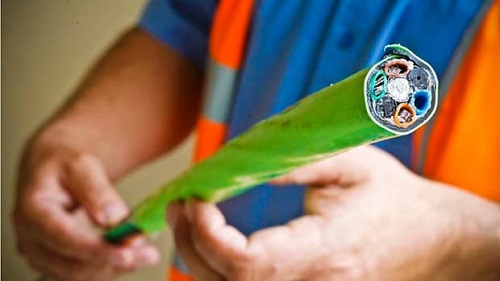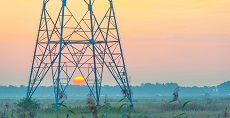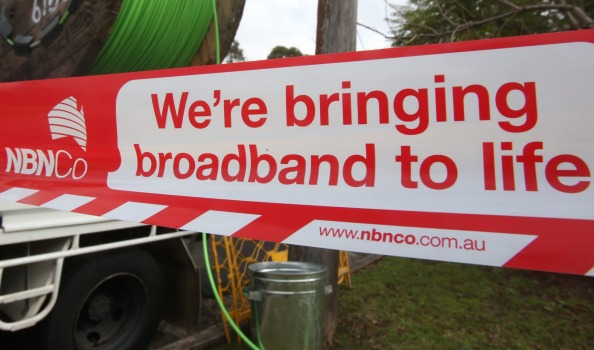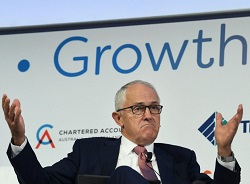
In a waiting room, having nothing better to do than read news items on my phone, this one appeared:
Continue reading The gig economy is not all it is cracked up to be

In a waiting room, having nothing better to do than read news items on my phone, this one appeared:
Continue reading The gig economy is not all it is cracked up to be


The plaintiff, Dewayne Johnson, had used Roundup in his job as groundskeeper in a California school district. He later developed non-Hodgkin lymphoma. The jury awarded Johnson $39 million in compensatory damages to cover pain, suffering and medical bills due to negligence by Monsanto, plus an additional $250 million in punitive damages.
You will recall that after the closing of Hazelwood Power Station at the end of March 2017 fears were held that the 2017-18 summer would see extensive blackouts. AEMO, the Australian Energy Market Operator, was tasked to assemble a strategic reserve to keep the lights on.
AEMO assembled a reserve of 1150 megawatts mainly “demand response” capacity with capital cost approaching zero, but the mechanism the agency had used called the Reliability and Reserve Trader or RERT, can’t be automatically rolled over for the summer of 2018-19. And perhaps it can’t be done at all, because the rule-maker, the Australian Energy Market Commission, has changed the rules governing the RERT so that the mechanism can only be used on 10 weeks notice in an emergency as a last resort, which is simply impractical.
So what is going on? Continue reading AEMO wants ‘demand response’ as strategic reserve
CEO Andrew Vesey has advised that AGL are ordering the equipment they need to convert Liddell’s turbines to “synchronous condensers” to fim up solar and wind energy. AGL’s plan for a clean energy hub to replace Liddell is going ahead, according to Ben Potter in the AFR.
Beyond tha,t the same edition of the AFR has an article explaining the conundrum of the Liddell fight, making particular reference to what the advice from AEMO (the Australian Energy Market Operator) actually said. This issue was raised in the comments thread of the post Energy crisis? What energy crisis? AEMO boss Audrey Zibelman took exception to an article Malcolm Turnbull’s bid to flog Liddell to Alinta ill-advised: AEMO. Continue reading AGL doubles down on Liddell plan
Found this interesting article where some experts argue that Sydney train problems could be fixed by halving car registration and removing tolls. It reverses the normal mantra in favour of active and public transport. My take is that the article is asking the wrong questions. The key question that should be asked is “Why do we continue to allow Australia’s mega cities to grow instead of creating new, properly planned cities?” This post looks at other questions that might be asked if we want to make the transport systems of Australian mega cities more workable. Continue reading Questions for Mega Cities
I wonder whether other states have a similar capacity, but it seems the electricity system in Queensland has a fibre optic network with plenty of spare capacity. They just strung it out on the poles, and presumably use it to run the electricity network.
During the recent election campaign I heard Steve Baxter, the Chief Entrepreneur, say that a decision had been made to open the fibre network to businesses in regional towns, which would give them internet speeds equivalent to those in Brisbane CBD. He rated it as the most important piece of state infrastructure since bitumen roads.
On the weekend there was an article in the Sunday Mail (probably pay-walled) which said the facility was already available to businesses on a commercial basis, and could provide an alternative for residents only reachable via satellite in some towns. Continue reading Queensland to set up it’s own NBN and become startup central
 It’s the season for cherry picking on electricity prices as an election is called in Queensland. This can happen because no-one, not journalists, not ABC radio hosts, and unfortunately not ‘experts’, reads Queensland Government media releases. The offending politicians from the opposition LNP are getting a free ride, with statements like ‘Prices increased 70% under Labor’ (Tim Nichols on TV) and, ‘We will put downward pressure on electricity prices’ without saying how.
It’s the season for cherry picking on electricity prices as an election is called in Queensland. This can happen because no-one, not journalists, not ABC radio hosts, and unfortunately not ‘experts’, reads Queensland Government media releases. The offending politicians from the opposition LNP are getting a free ride, with statements like ‘Prices increased 70% under Labor’ (Tim Nichols on TV) and, ‘We will put downward pressure on electricity prices’ without saying how.
I’ve assembled a fair bit of information in two posts – Queensland powers up for a warm summer and Electricity bills – Queensland acts because it can. In this post I’ll summarise what I think has happened, and then mention some of the cherry-picked claims being made. There is some new information in the post. Also there is a particular problem with Steve Austin on Mornings on local ABC radio. I don’t mind the bloke, normally, but on electricity he’s lost the plot.
I’ve provided some links here, but there are many more in the earlier posts. Continue reading Cherry picking electricity prices in Qld election
 Rod Sims’ speech Shining a light: Australia’s gas and electricity affordability problem to the National Press Club certainly established that Australia has a gas and electricity affordability problem which is hurting many consumers and businesses. Electricity prices have more than doubled since 2009 as shown in this graph:
Rod Sims’ speech Shining a light: Australia’s gas and electricity affordability problem to the National Press Club certainly established that Australia has a gas and electricity affordability problem which is hurting many consumers and businesses. Electricity prices have more than doubled since 2009 as shown in this graph:

Would that they were.
Paul Budde has urged the government to press the reset button on the NBN, as short-term and longer-term faults and complaints affect up to a third of connected customers and large numbers of premises are being put in the too hard basket for connection.
One man was without a phone or internet for four months, and only got relief after media involvement. Then he got relief by being reconnected to the legacy service he had left, which is against the rules. Continue reading Pressing the reset button on the NBN
The Four Corners program Power Failure added to the sense of crisis around our power system, beginning with the breathless comment that there was almost a breakdown of civil order in South Australia when the lights went out in September. The program looked at the difficulties experienced when the power went off for three days. Recently in some places affected by Cyclone Debbie, crews couldn’t get in to start fixing for about double that time. I’ll come back to Four Corners via a series of articles published on the same day.
First, in the AFR tucked away on page 8, Mark Ludlow penned an article Renewables, EIS ‘make gas-fired power redundant’ (paper edition title). Ludlow interviewed Professor Frank Jotzow, director of the Centre for Climate Economics and Policy at ANU, who said gas had been overtaken by renewable energy, including battery storage, in the transition away from coal-fired power. We should skip gas and go straight to renewables with batteries. Continue reading Power tipping point
 Malcolm Turnbull has now, for reasons best known to himself, elevated “energy crisis” to a “national security” issue. Ben Potter puts the situation well:
Malcolm Turnbull has now, for reasons best known to himself, elevated “energy crisis” to a “national security” issue. Ben Potter puts the situation well:
Three years ago, manufacturers began complaining they couldn’t get gas, and 18 months ago the South Australian grid started to wobble.
Now, electricity and gas prices across the eastern states are two to three times their levels only a couple of years ago.
Gas exporters overcommitted to foreign buyers; the federal government mismanaged renewable energy and the regulatory apparatus – and politicians responsible for it – are frozen in the headlights.